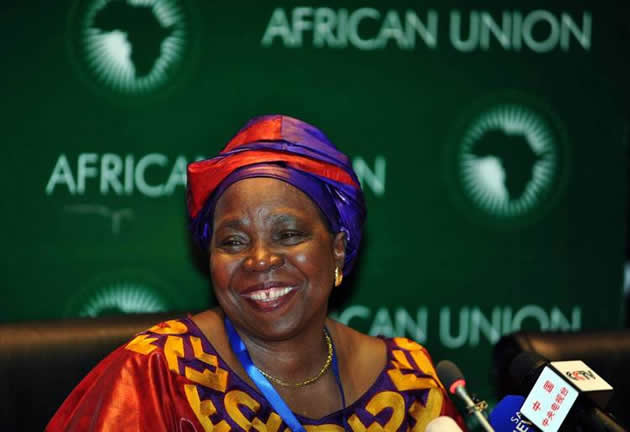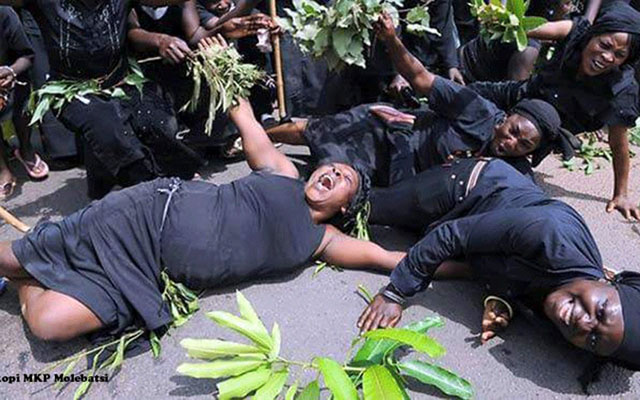Women, mothers heroes of our life
David Mungoshi Shelling the Nuts
Over the weekend I drove to Coventry to be among happy and united Zambians celebrating 52 years of their country’s independence. I can say without any hesitation whatsoever that I had a good time. Most people at the gathering hold regular jobs and are generally very busy people. So that meant celebrating Independence Day early, as October 24 fell on a Monday. As we made our way into Coventry City, my companions told me about the old football stadium where Peter Ndlovu or “Peter N. Love”, the “Flying Elephant”, did his exploits in his day.
In my mind’s eye, I could see him dazzling football fans with his speed and nimble-footedness and could do nothing to stem the nostalgia that washed over me. Reinhard Fabisch and the Dream Team, the senior national football team, made the nation believe and dream big and sweet about the World Cup and other possibilities.
That was a time of bravado and confidence, a beautiful time of football camaraderie. The venue was alive with Zambians decked in their national colours. The room was awash with the green, red, black and orange hues of the Zambian flag.
An expert had decorated the hall and everywhere you looked, the women made a bevy of beauties in the latest fashion designs that always captured the motif of independence. The men, not to be outdone, had their “Zambian” shirts and scarves to complement the women’s head dresses and chitenjes.
A white woman in a chitenje (wrap-around) that she said was 52 years-old was the guest speaker. She was one of the few in the gathering who happened to have been present when the Union Jack went down and was replaced by that of the Republic of Zambia.
Something someone in the gathering said about that sublime moment made me want to talk about women, mothers and gender. She exhorted everyone to give a round of appreciation to the lovely and lively women present. We gave the women a standing ovation more or less. It was a feel-good moment.
Perhaps not unexpectedly, something from my reading of history during my undergraduate years at university came into my mind: the upheavals that were set in motion by Shaka the Zulu King as he built his empire during the era known as Mfecane. Consequently, the demographic map of Southern Africa changed.
A group of Sotho-speaking people later known as the Makololo crossed the Zambezi and subjugated the Lozi people of Barotseland and became overlords for a period of over 30 years after which they were spectacularly overthrown.
Makololo became the lingua franca and traces of it remain to this day. When the Makololo were overthrown, the Lozi language was found to be alive and well even though it had assimilated features of the Kololo language. There are several schools of thought on this, but one says Barotse women clandestinely kept the language alive.
This is an example of how women and mothers can be custodians of a people’s culture and how they can preserve a language under siege. Yet you hear men, including worthless ones, denigrating women purely on the basis of an accident of biology.
How often do touts and commuter omnibus crews behave despicably towards our women folk? Their sexist language and the frequency with which they spew it forth is quite disgusting. This is notwithstanding all the progressive laws that our legislators have passed over the years.
It’s a long way from those dark days when a woman needed a man’s signature to buy things on account. A woman had no national identity card and even when she wanted to withdraw money from her own bank account she needed some male, any male, to vouch for her with his national ID.
Many among us were spared this ignominy by the liberation struggle in whose aftermath laws such as the Age of Majority Act and a progressive law on inheritance were passed. Happily for us, quite a number of prominent artistes expressed gender-sensitive views in their music.
They eulogised women, embraced their struggles and gave a lot of respect to motherhood. “Neria” by Mtukudzi is a very good example of this. Babsy Mlangeni, an Afro-Pop star from South Africa has an apt song called “Mama” (Mother) in which he reminisces about growing up under conditions of extreme poverty and deprivation.
It is a song about homelessness and struggle and how a mother struggles diligently to bring up her children and give them a life. In the end, a son of the woman in the song can thank his mother for everything and promise her that wild horses could never separate them. He is now a man among other men and now has a home and a family. This collage of experiences is the story of many women out there.
Arthur Chipunza, the composer and singer of the classic jazz song “Mvura Ngainaye” (kumakomo kwaMusami)’, which he did with the St Paul’s Musami Band all those years ago also had a melodious and contrite song whose lyrics translated from the original Shona say:
I was being led astray by friends // Telling me that women were no good // As if I was not myself, the son of a woman
How many of us are guilty of such callous behaviour? How many of us men routinely use derogatory language against women, denigrating them at every turn?
The way things are panning out around the world, it would seem that we are either blind or are wilfully deceiving ourselves. It is no longer such a phenomenon to see women in positions of authority.
Theresa May, the current British premier carries herself with as much self-assurance, pomp and poise as any hard-boiled male politician or diplomat would do. Hilary Clinton, regardless of her many shortfalls, has been holding her own against the embattled Donald Trump. She might soon be making history as the first American female president.
Prince Nico Mbarga and his Rocafil Band have a passionately loving song done in honour of all mothers.
“Sweet Mother” is a song originally done by Slim Ali and the Hodi Boys of Kenya.
The Pidgin English lyrics are quite epigrammatic in many respects.
Every mother’s son can easily identify with the sentiments the song expresses.
“Sweet Mother” describes the long-suffering nature of mothers as well as their unwavering determination to beat the odds.
Love for their children is pure and unconditional. In his ode to mothers Nico Mbarga sings:
When I dey sick my mother go cry// She go say instead wey I go die make she die// She go beg God, God help me, God help me, my pikin o// If I no sleep, my mother no go sleep// If I no chop, my mother no go chop// She no dey tire o-o-o
I can’t listen to this song without thinking about the many times my mother gave us food to eat and pretended that she had some in an earthen pot that only she could see the contents of. She would rather have starved than see us perish from hunger. Mothers are the unsung heroes of our life. They deserve greater appreciation from all of us.
In the now defunct Soviet Union, mothers were generously rewarded for bearing children. There were material and other benefits attached to motherhood.
Perhaps our legislators can consider approving the commissioning of a statue in honour of the mothers of Zimbabwe.
Such a statue can be enacted at all heroes’ acres including the National Heroes Acre. We need new paradigms that upgrade the lot of women and mothers.
In the musical “Gigi”, Maurice Chevalier croons about little girls: “Thank heaven for little girls, for without them what would little boys do?”
Similarly, all of us men should thank heaven for women. For indeed without them what would we do? We would be rudderless and clueless in a bewildering world.
There are things that can be done now rather than later. The envisaged new curriculum, for instance, should be used to make all children gender -sensitive quite early on.
Opportunities for addressing this problem are more than plentiful. What with the need to create new learning materials!
No sexist language or any language that trivialises women should be allowed space in any school books whatsoever.
Action rhymes, poems and songs with words that extol the virtues of mothers should be written, published and used in the schools.
The law should make it a punishable offence for anyone to use language that denigrates women in public places.
Classics like Jacob Mhungu’s “Kushaya Mai Chiro Chakashata” (It’s a great misfortune having no mother) and Mtukudzi’s “Kusina Mai Hakuendwe” (You don’t go visiting where your mother isn’t) should be elevated to ancillary national anthems.
Only when we act bravely can we eventually achieve gender equality.
Real men have no objection to women excelling.
David Mungoshi, an applied linguist and teacher of long-standing is also a poet, short story writer and award-winning novelist.










Comments